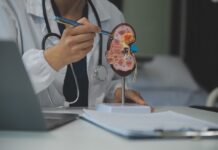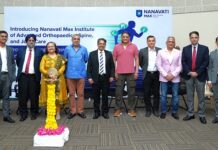

Autism, a developmental disorder characterized by functional abnormalities in brain development, arises from a combination of genetic and environmental factors, with symptoms often appearing in children as early as two years of age. Among its complexities, Autism Spectrum Disorder (ASD) has been linked to mutations in genes critical for early brain development.
A recent study by the Rajiv Gandhi Centre for Biotechnology (RGCB) has identified a novel mutation in the Tlx3 gene associated with abnormal cerebellum development—a key region of the hindbrain responsible for balance, motor control, and other complex functions—and autism. This groundbreaking research, led by Dr. Jackson James and his team from the Brain Research Institute Centre (BRIC-RGCB), has been published in the journal iScience.
As per the press release, using transgenic mice, the researchers deleted the Tlx3 gene in the cerebellum during embryonic development. This disruption affected the coordination of cerebellar functions, and when the embryos matured into adults, the mice exhibited hallmark autistic behaviors, including impaired social skills, repetitive behaviors, and motor dysfunction.
In collaboration with the Council of Scientific and Industrial Research–Institute of Genomics and Integrative Biology (CSIR–IGIB), New Delhi, the RGCB team further explored the potential occurrence of TLX3 mutations in humans. They identified variants of this gene linked to nine cases of ASD and other co-morbid neurodevelopmental conditions.
Dr. James emphasized the need for a genome-wide analysis across global populations to determine the prevalence of TLX3 mutations and their association with specific groups, such as Indian populations. The findings underscore how dysregulation of this critical embryonic gene can contribute to the development of ASD symptoms during early childhood.
RGCB Director, Prof. Chandrabhas Narayana, highlighted the significance of this research. “Autism is a major childhood challenge worldwide, and in India, it has significant social and medical implications. The RGCB study provides valuable insights into this behavioral disorder,” he said.
ASD is marked by behavioral deficits, including impaired social cognition, restricted and repetitive behaviors, and challenges in communication and actions, underscoring the importance of understanding its genetic underpinnings for better diagnosis and treatment approaches.






















